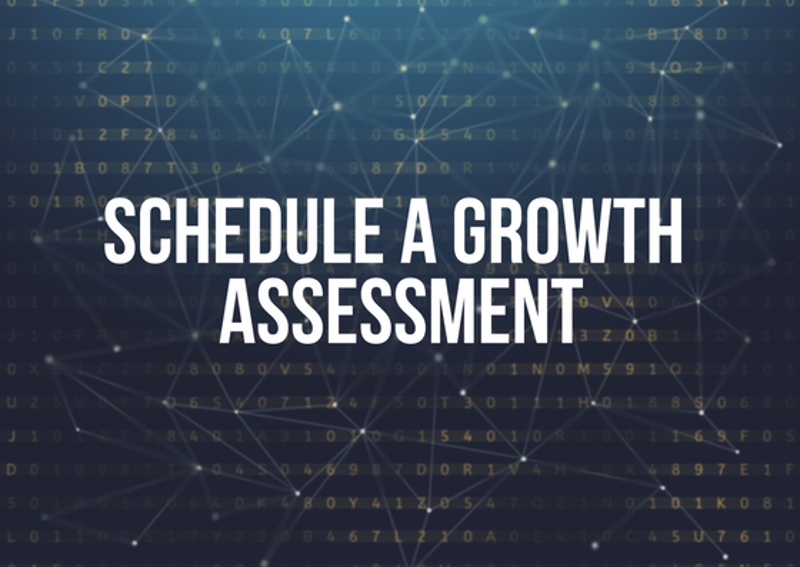
A motivated and excited lead isn't necessarily a good lead, and knowing when to cut bait is often just as important of a skill as closing...
I am so mad at myself right now... I just wasted a MONSTROUS amount of time with a lead that I should have known was not ready to buy, but I blew it... and I know exactly why...
What makes it worse is that prior to starting my agency, when I was in business development for several organizations, I would have immediately recognized these red flags, and probably would have fought tooth and nail with management and even our owner(s) about cutting bait, and moving on.
MORE LIKE THIS: I Wouldn't Buy From You In a Million Years!
I'm responsible for sales in my company, but I'm also the owner, and I have a TON of exposure in both roles, even prior to my agency, working directly with business owners and sales, and it's RARE that they see the world similarly, especially when it comes to the value of a lead, what is closeable, and what is not... So, pretty much EVERYTHING related to the salesperson's job.
As a business owner, it's easy to overlook why some leads SHOULDN'T become customers... or at least why we shouldn't spend time on them today. And the more pressure you put on your teams to meet their call, appointment, and opportunity quotas, the greater the likelihood that it's going to backfire, and they're going to spin their wheels with a lot of bad juju.
Why? Because they're probably going to chase terrible opportunities that either result in no sales, or terrible customers who don't value your services, and find every way possible to destroy your margins.
The signs are ALWAYS there -
I knew early on that this deal was a long shot for a number of reasons, but when I pushed back, at the prospect's insistence, we kept going through our sales process, which looks like this:
- Somebody requests a consultation
- Spend 15 minutes on the phone determining whether a full exploratory call is warranted
- Spend 60 - 90 minutes going through an exploratory discussion, where I learn more about the business today, yesterday, and the vision for tomorrow
- If we're still rowing in the same direction, we spend another 60 - 90 minutes on a "goal setting & planning" call - where we take everything we've learned, and walk through how we can reach their goals through the inbound marketing delivery model
- If they're still interested, this is when they ask for a proposal
- The final call is to review the proposal and lock in a start date
Mind you - these are all coming from leads generated by inbound marketing, and they're all requesting consultations through our website or by calling.
Click here to learn more about the inbound sales process, and here if you're interested in learning about our sales enablement services.
Now, for this story, there were red flags every step of the way, and as I mentioned, when I brought them up directly with the prospect, I was assured by them that I shouldn't be worried. We got all the way to creating a proposal, having it vetted by my team, edited, and sent off to the client.
Then they responded by email telling me (not in so many words, of course) that I was wasting my time... This, after 3 hours of calls, double that for prepping, hundreds of dollars in costs by bringing in other team members to weigh in on it, and another half dozen hours or so building out their customized proposal and presentation...
Grrrr....
I'm a little upset at myself, because I saw the signs, and I ignored my sales instincts in favor of my business owner instincts, resulting in nothing but waste.
So, let me share with you the objections I encountered that should have been the clear-cut sign that it was time to cut bait... and several others I've encountered over the years.
AND FYI - This article was originally 11 sales objections, but we ended up with a blog that was WAYYY too long, so it was broken down into digestable pieces, and the others will be published shortly.
11 3 sales objections ...
...that should have you more than a little worried that your sales people are wasting their time and your money, EVEN WHEN THE PROSPECT SAYS OTHERWISE.
1: Budget mismatch
This is a hard subject to broach, because the minute you start talking fees, your prospect is going to relate your costs to the value you provide, and if you have yet to prove your worth, this is a quick way to make it easy for somebody to say, "you're too expensive."
If you're like us, you're not in the business of selling commoditized anything, and it's impossible to measure the value of an inbound program in the first conversation.
Not only do we not know enough about our prospects and their problems to make an intelligent estimation of our costs, but they don't get what any of our deliverables mean until they can see how each one contributes to their growth. So, numbers may sound a lot bigger than they are, because they don't realize what all is involved.
I'm sure your sales people see it the same way.
HOWEVER, budget and cash-flow are two different things, so as long as somebody is CLOSE to our range, I will typically move them to the next step if they're into it after hearing my ball-park amount.
In this case, I mentioned that our fees range anywhere from $4,000 to $15,000/month depending on the existing benchmarks, their goals, and timeline. They didn't have an exact budget in mind yet, but said they think they could swing from $1,500 to $3,500.
It was at this point that I pushed back stating that perhaps this isn't the right time, but that's when they insisted on the next call anyway, because they "needed to be educated and maybe they were wrong."
My sales gut told me to run away - that I was just being used at this point to develop strategy and JUST be a source of education rather than a solid prospect. Normally, my prospects agree at this point when I determine it's too small. These guys did not, and because of that, my business owner gut started thinking about how it would impact our business, and I let it take over.
2: Won't commit to next steps
I've run into this issue a million times - where somebody asks for materials or a proposal, but doesn't want to go through the formal sales process. They just want to read about it at a more convenient time.
Mind you - we don't cold call ANYBODY. Not one cold call in over 3 years at Orange Pegs (READ: How to Ditch The Cold Calling Scripts. Once. And. For. All). And actually, we're so busy with our clients and dealing with our own growth, and even getting enough direct inquiries, that we haven't been able to proactively reach out to prospects who download content and meet our lead-scoring thresholds but don't ask for the meetings (although that is changing).
My point being that even when others initiate contact, they can still be a flight risk.
For example, we'll jump on the phone, kick the tires, and a new prospect will say all of the right things throughout, getting me excited at the opportunity to help them, but at the end of the call, they'll end with, "just send me some information, and then we'll set up the next call," or "I'll email you with my availability" (when we could literally just point our eyeballs at our existing calendars and lock it in right then).
My hope is that this is identified early on, so we're not spinning our wheels with prospects that have no immediate future with us. That's not to say that we won't at some point - even this prospect that rejected us today is a good candidate in 12 months, but that's a lot of green to cover, and although I've landed some pretty impossible deals over the tennure of my sales career, this is a long shot at best... Best to deploy back-burner nurturing here, not try prematurely close them.
My suggestion is enact a sales agenda for surfacing for bait-cuttin' signals just as much as buying signals, and support them moving on immediately when they realize that the deal is 12+ months away from closing...
3: Nickel and dime
When I was in corporate advisory services, I remember a prospect we had that was proving difficult to reel in. So difficult, in fact, that I brought in my sales director, her boss, and even had it brought up in team discussion.
The problem was that this prospect wanted us to slash and destroy our margins, and we even quibbled over a single percentage point before finally giving them what they wanted just so we could bring it in.
And we did... gave them everything they wanted, that is.
Of course, they were the worst clients ever. The entire project was excruciating according to our project team, and they short-paid every single invoice... even after getting the crazy reductions they already got.
MORE LIKE THIS: When we fire clients
Yes, it looked great at the time, and actually pushed me over the top in a sales contest, and was worth quite a bit to me, actually.
Eventually, we disengaged with the client, and had to eat a decent amount of our costs. I never heard the end of it.
But I wanted to cut bait with these guys right away. The owner seemed shady, and they were balking at pricing from the beginning. However, due to pressure from the powers that be that only viewed our days as numbers (meaning - are we hitting our call, appointment, and proposal quotas?), and the insistence of certain folks to close it, we wasted a monstrous amount of time and resources...
My time - my manager's time - my director's time - even our production staff... Nobody won here (except me, because of that somewhat misguided contest).
CONCLUSION:
Sales is a hard gig, and I think it's getting harder every single day - primarily because of where people are getting their leads. It's easy to look at metrics from prior years and compare them to today, and use that to pressure your teams into doing better, but it doesn't take into account all of the changes we've gone through in the last 20 years.
The internet is just a baby, and it has already transformed the way our entire planet communicates. It has empowered us to take ownership of our lives, and find answers and ideas to all of the problems we encounter. It has made us better, smarter consumers who don't need salespeople to tell us what's wrong... and who don't WANT salespeople to tell us what's wrong.
More aggressive calling quotas isn't going to overcome the fact that your audience has outgrown your sales tactics. But knowing when to cut-bait, and actually doing it CAN help by at least reducing lost time on bad opportunities.
Speaking of which - if you're interested in learning how to communicate with your audience the way that supports the internet revolution, let's have a short conversation about inbound marketing! Click HERE, and let me know what you're trying to accomplish:



